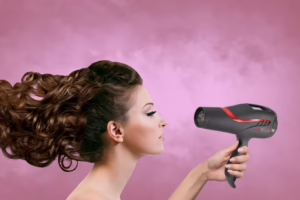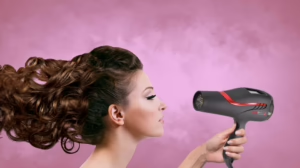Hair and Health: How Nutrition Affects Your Tresses
Maintaining healthy hair can often feel like a complex puzzle. Many people invest in high-quality shampoos, conditioners, and treatments to ensure their locks remain vibrant and strong. However, the foundation of healthy hair often lies not in the products we use externally, but in the foods we consume internally.
Understanding Hair Structure
To comprehend how nutrition affects hair health, it’s crucial to understand the basic structure of hair. Hair is primarily composed of a protein called keratin, which is created in hair follicles. Each strand of hair has three layers: the cuticle (outer layer), the cortex (middle layer), and the medulla (inner layer). The cortex provides strength, color, and texture, while the cuticle helps protect the inner layers.
The Role of Nutrition in Hair Growth
Nutrition plays a vital role in the synthesis of hair proteins. A deficiency in key nutrients can lead to hair thinning, brittleness, and even hair loss. Here’s an in-depth look at the nutrients that are particularly important for hair health:
1. Proteins
Since hair is primarily made up of protein, consuming adequate protein is essential for hair growth and strength. Foods rich in protein include:
- Lean meats: Chicken, turkey, and fish are excellent sources.
- Legumes: Beans, lentils, and peas are great for vegetarians.
- Nuts and seeds: Almonds, walnuts, and chia seeds provide protein along with omega-3 fatty acids.
2. Omega-3 Fatty Acids
Omega-3 fatty acids are beneficial for scalp health and can stimulate hair growth. They keep the scalp hydrated and reduce inflammation. Incorporating foods such as:
- Fatty fish: Salmon, mackerel, and sardines are among the best.
- Flaxseeds and chia seeds: These plant-based sources are rich in omega-3s.
3. Vitamins and Minerals
Numerous vitamins and minerals play a significant role in hair health.
- Vitamin A: Essential for cell growth and the production of sebum, which moisturizes the scalp. Sources include carrots, sweet potatoes, and dark leafy greens.
- Vitamin E: Acts as an antioxidant and protects hair from oxidative stress. Foods rich in vitamin E include nuts, avocados, and spinach.
- Biotin (Vitamin B7): Known for promoting hair growth and strength, biotin can be found in eggs, nuts, and whole grains.
- Iron: Iron deficiency can lead to hair loss, particularly in women. Foods like spinach, lentils, and red meat are good sources.
- Zinc: Helps with hair tissue growth and repair. Foods high in zinc include oysters, beef, and pumpkin seeds.
4. Hydration
While water is often overlooked, it is essential for overall health, including hair health. Dehydration can lead to dry and brittle hair. It’s crucial to drink sufficient amounts of water daily and consume water-rich foods such as cucumbers and watermelon.
The Impact of a Poor Diet
A diet devoid of essential nutrients can lead to a variety of hair problems. Deficiencies in vitamins and minerals can trigger a condition known as telogen effluvium, where hair prematurely enters the shedding phase. Additionally, this can result in:
- Thinning hair
- Increased hair loss
- Dry and lifeless strands
- Brittle hair that breaks easily
Nutrition Myths and Misconceptions
Despite the plethora of information available, many misconceptions about hair nutrition persist. Debunking these myths can help individuals make more informed choices regarding their diets:
Myth 1: Cutting Hair Makes It Healthier
Contrary to popular belief, trimming hair does not affect its health. Hair health comes from within, influenced by diet and overall well-being. While regular trims can help manage split ends, they do not have any impact on hair growth.
Myth 2: The More Protein, the Better
While protein is crucial, excessive consumption does not necessarily promote hair growth. The body thrives on balance. Overloading on protein can stress the kidneys and may have adverse effects on overall health.
Myth 3: Hair Products are the Primary Solution
Many individuals believe that the right hair products can rectify all hair issues. While products can improve appearance and manageability, they cannot replace the fundamental requirement for a nutrient-rich diet. Real change often starts from within.
The Connection Between Lifestyle and Hair Health
Beyond nutrition, other lifestyle factors can significantly affect hair health. Stress, sleep, and overall physical activity play a vital role:
Stress
Chronic stress can lead to hormonal imbalances that affect hair growth. Conditions like alopecia areata, where hair falls out in patches, can be triggered by stressful events. Employing stress management techniques such as yoga, meditation, and regular physical activity can improve not just hair health but overall well-being.
Sleep
Adequate sleep is essential for bodily functions, including hair growth. During sleep, the body repairs itself, and lack of rest can lead to hormonal imbalances that may contribute to hair loss. Aim for 7-9 hours of quality sleep every night.
Physical Activity
Regular exercise promotes blood circulation, helping to deliver vital nutrients to hair follicles. Engaging in physical activities not only boosts overall health but also supports hair growth.
Hair Care Tips for Optimal Nutrition
Here’s how you can optimize your diet for better hair health:
1. Incorporate a Variety of Foods
Include a colorful array of fruits, vegetables, whole grains, and lean proteins in your diet to ensure you get a wide range of nutrients.
2. Consider Supplements Wisely
If you struggle to obtain sufficient nutrients, consider taking a multivitamin or specific hair health supplements. Always consult with a healthcare professional before starting any new supplement regimen.
3. Limit Processed Foods
Highly processed foods often lack essential nutrients and can lead to inflammation, negatively affecting hair health. Focus on whole foods wherever possible.
4. Stay Hydrated
Make it a habit to drink water throughout the day. Keeping a water bottle handy can help remind you to stay hydrated.
5. Monitor Your Scalp Health
A healthy scalp is crucial for healthy hair growth. Use gentle shampoos and avoid excessive heat styling to maintain scalp health.
6. Seek Professional Guidance
If you’re experiencing significant hair loss or other related issues, seek advice from a dermatologist or a nutritionist specialized in hair health. They can provide personalized recommendations based on your unique needs.
Conclusion
Healthy hair is undeniably a reflection of a person’s overall health, heavily influenced by diet, lifestyle, and mental well-being. By understanding the powerful connection between nutrition and hair health, individuals can take actionable steps to improve both their locks and their overall well-being. Investing time in a balanced diet rich in essential nutrients is undoubtedly the first step toward achieving luscious, vibrant hair.
By making informed choices, embracing a holistic approach to health, and prioritizing nutrition, anyone can cultivate the kind of hair they desire. Remember, the journey to healthier hair begins with what you put on your plate—and ultimately, inside your body.
References
-
S. A. Al-Khenaizan et al. "Nutritional Aspects of Hair Loss." Journal of Clinical Dermatology, 2020.
-
H. Kim et al. "The Role of Nutrition in Hair Health." Dermatology Clinics, 2021.
-
C. Z. Bachelet et al. "Nutrition and Hair: A Key Element in Hair Health." Nutrients, 2019.
-
M. M. Santamaria et al. "Dietary Deficiencies and Hair Loss: A Review." International Journal of Trichology, 2018.
-
J. Peters et al. "The Importance of a Balanced Diet for Hair Growth." American Journal of Clinical Nutrition, 2020.
- R. A. Gunter. "Hydration and Hair Health: An Overlooked Connection." Journal of Cosmetic Dermatology, 2022.


























Add Comment